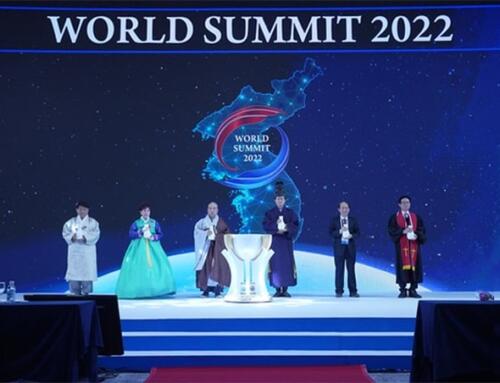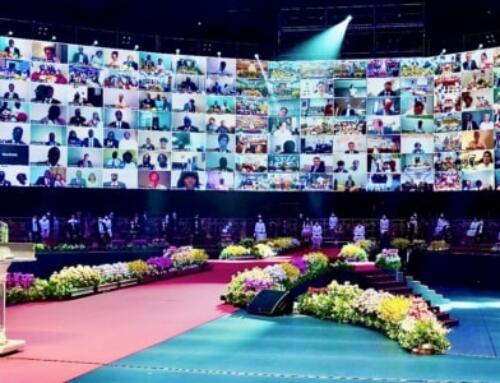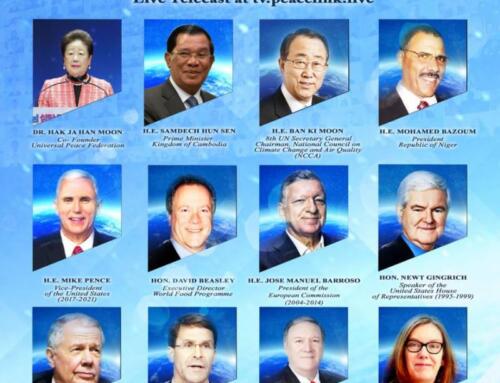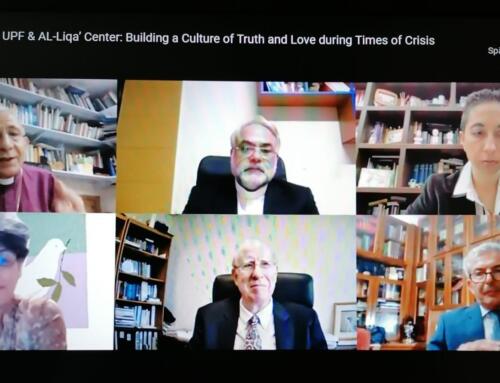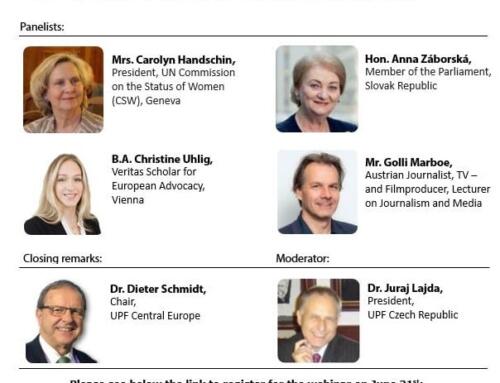Written by Dr. William Selig, UPF International
Friday, November 10, 2017
Seoul, Korea—Approximately 400 leaders from 60 nations attended the opening banquet of the Interreligious Leadership Conference 2017.
The conference, which opened on November 10 at the Lotte Hotel World, is being held jointly by the Universal Peace Federation and the American Clergy Leadership Conference, an affiliated organization.
Representatives of the world’s major religions, academics and interfaith activists are among those attending the conference, whose theme is “Addressing the Critical Challenges of Our Time: The Role and Responsibility of Religious Leaders and Faith-Based Organizations.”
Dr. Michael W. Jenkins, the national co-chair of ACLC, served as the emcee. Interfaith invocations were given by Rev. John Izvernariu of the Templestowe Baptist Church, Iranian Congregation, in Australia and Ven. Pramahaboonthin Taosiri, the president of the Thai Buddhist Society of Sweden.
Welcoming remarks were given by Dr. Thomas G. Walsh, the chair of UPF International, and Dr. Ki Hoon Kim, the vice president of the Family Federation for World Peace and Unification (FFWPU) International, another affiliated organization.
The speakers addressed the importance of interfaith dialogue and cooperation for the sake of building a world of peace, and were unanimous in their appreciation of the founders of UPF and ACLC.
Mrs. Wonju Jung McDevitt, the chief of staff of the Founders’ Secretariat, said the founders taught that “world problems cannot be solved solely based on external solutions, emphasizing the need of an internal approach, particularly stressing that knowing God, who is our Heavenly Parent, His Will and the direction of His Providence, to be essential in resolving world problems.” She also said, “All religious leaders have an important responsibility that is crucial to world peace.”
Buddhist monk Seishi Moriyama from Japan, who is a nuclear engineer by training, gave an interesting testimony about the earthquake and tsunami that struck his country in 2011. Rev. Moriyama said he felt there was an underlying spiritual cause behind this tragedy, so he initiated an outreach campaign to Buddhist temples, Shinto shrines and Christian churches to pray for heavenly intervention and for the unification or harmonization of religion and science.
Mr. Sutinder Singh Jabbal, the leader of the Sikh Community in Kenya, told the participants: “We are blessed. Why? Because we were chosen to be here. It is His will, His benevolence, that He brought us together for the next three days. Let us wonder in our hearts what is His mission for us.” Mr. Jabbal said he believes we should be reminded that “we were created by Him, so nobody is different—including our brothers and sisters in the north. … God wants His family to sit down together at the dinner table.”
Professor Syafaatun Almirzanah, a professor of religious studies at Sunan Kalijaga State Islamic University in Indonesia, thanked UPF and ACLC for holding this meeting. She spoke about the plurality of religions. “We find that our various traditions share some of the same fundamental values that each of us cherish in our own religions, albeit expressed in different ways,” she said. “We also realize that we are being challenged to articulate our own religious identities in an increasingly religiously plural setting where others are, in many ways, listening and asking questions of us as we do so. What this means is that, whether we like it or not, to be religious today is to be interreligious.”
Mrs. Vicki Lyn Tiahrt, the co-founder of American Prayer Initiative, USA, pointed out that the Republic of Korea is a strategic country and that “the Korean situation is so volatile that the whole world is watching. The timing of the conference is providential.” Mrs. Tiahrt called on the women in the audience “because we care about peace. We care about our families and the world they live in. We women know things are not the way they should be, our world is broken, and too often so are our families and our homes. We women have been tried, tested and rocked by the evil in our world, in our lands and even in our own country [music] concerts, bike paths and even churches. … We unite for victory, and we will pray, work and live for peace.”
Bishop Noel Jones, the senior pastor of the City of Refuge Church in the United States, expressed gratitude to UPF, its co-founder Dr. Hak Ja Han Moon, and its affiliated organizations for bringing this conference together. We each have a unique concept of God, he said, like a fingerprint that can’t be duplicated. “The good thing is that it forces us to share and to listen to others. Each of us has a piece of the puzzle. I cannot comprehend God without your piece, so we need to be sharers. Our role is to bring everyone in place to understand that God loves all of us.”
There was a joyful and expectant spirit as the banquet came to a close. Conversations centered on the issue of the Korean Peninsula and the challenges that the world faces, but there was agreement that religion and faith-based organizations have a meaningful and important role to play.

